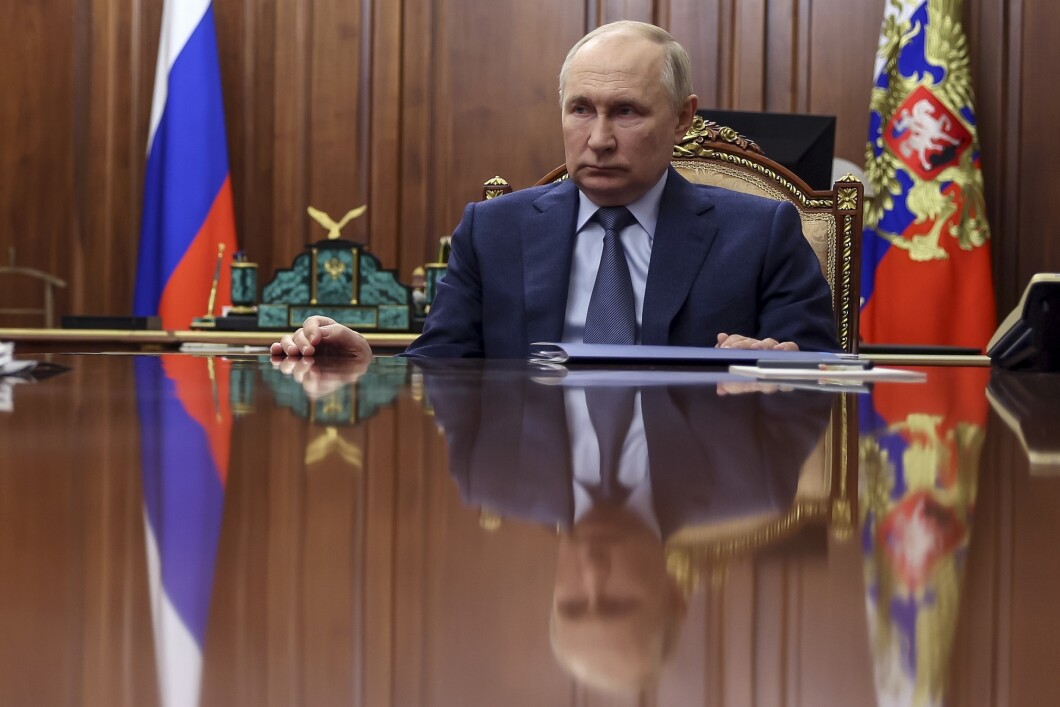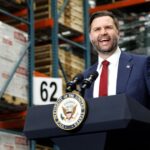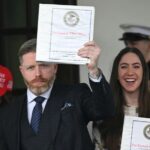
Ukraine has nothing to gain from negotiations with Russia at this juncture, according to Secretary of State Antony Blinken’s team.
“We see no indication that Russia is willing to entertain substantive, real peace negotiations,” Assistant Secretary James O’Brien, who leads the State Department’s Europe bureau, said Monday. “And it would be pointless to have a discussion on Ukraine’s side. It’s not a dialogue; it’s a monologue of surrender.”
‘DISAPPOINTED’ BIDEN APOLOGIZED AFTER SHOWING SKEPTICISM ABOUT HAMAS DEATH TOLL CLAIMS
O’Brien offered that assessment as Blinken travels to Brussels for the first meeting of NATO foreign ministers since Ukraine’s top military commander declared that the war has settled into a “stalemate.” That acknowledgment coincided with intensified disputes in Washington about continued American aid to Ukraine, but NATO leaders have maintained a public posture of solid backing for the embattled Ukrainian nation.
“This year, they continue to inflict heavy losses on Russia,” NATO Secretary-General Jens Stoltenberg said Monday. “Ukraine has recaptured 50% of the territory that Russia seized. It has prevailed as a sovereign, independent nation. This is a big win for Ukraine.”

That applause belies the angst about Ukraine’s inability to break through Russian fortifications in eastern Ukraine, where Russian forces managed to seize a so-called land bridge linking the sovereign Russian territory to Crimea, the peninsula that Russian President Vladimir Putin annexed in 2014. Yet Ukraine retains the staunch support of at least some of NATO’s major powers.
“Putin is stepping up his invasion – senselessly sending more Russians to die than at any time since the war began,” British Defense Secretary Grant Shapps wrote on social media. “Ukrainian bravery & Western support is holding back their advance, but we cannot be complacent. Ukraine needs our unwavering support to fight & win.”
Russian forces are taking “some of the highest casualty rates of the war so far,” according to British intelligence assessments, due to a renewed Russian effort to advance in Donbas.
“And of course, military achievements can partly be measured in square meters, but also on the losses you are able to inflict on your adversary,” Stoltenberg said. “But even though the front line has not moved, the Ukrainians have been able to inflict heavy losses on the Russian invaders, both measured in personnel and casualties but also in taking out fighting capabilities.”
Western support for Ukraine has been constrained in recent months by a shortage of artillery shells. The war has consumed more of those rounds than military strategists would have expected, and the European defense industrial base has not succeeded in ramping production at the rate needed to meet the ammunition transfer goals set by the European Union.
“Artillery ammunition availability has been one of the most important factors in this war,” Foreign Policy Research Institute senior fellow Rob Lee wrote last week. “There is no quick way of increasing artillery production capacity at this point; however, NATO countries can help Ukraine produce more [first-person view drones] and munitions for them to partially compensate.”
At least some Western officials also seemingly do not want to be perceived as pressuring Ukrainian President Volodymyr Zelensky to strike an unsatisfying deal with an occupying force.
CLICK HERE TO READ MORE FROM THE WASHINGTON EXAMINER
“Zelensky should realize that things cannot go on like this. Without any external request,” Bild, a German news outlet, quoted an unnamed government source as saying. “He should address the nation of his own free will and explain that negotiations must be launched.”
Those sentiments do not reflect U.S. policy, according to O’Brien. “It seems to us President Putin is talking about waiting for at least another year or more before he will contemplate an end to this war,” he said. “So it’s nothing that is part of our policy.”





